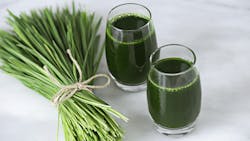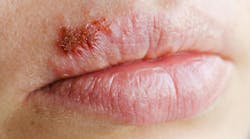Glutathione is the body’s most effective natural master antioxidant—a powerful detoxifier produced in the body. It works to neutralize free radicals formed within the body from natural chemical reactions and free radicals from outside the body found in the environment, alcohol, UV rays, and more. Glutathione works to stabilize these free radicals and prevent them from causing damage to cells and tissues.
As we age, glutathione levels naturally decline. Free radicals also deplete glutathione levels, increasing free radical damage and creating oxidative stress. This weakens immune function and allows toxins to build up in the body, resulting in toxic overload, disease, and premature aging.
5 ways to boost glutathione levels
Be intentional with your diet
Consuming sulfur-rich foods helps to increase glutathione levels. Sulfur is found in the two amino acids that are precursors to glutathione and contribute to its synthesis—methionine and cysteine—making this a critical mineral required for glutathione production.
Many foods fit into this category including sulfur-rich proteins, such as beef, fish, and poultry, and sulfur-rich vegetables, notably broccoli, cabbage, and cauliflower. Certain allium vegetables are a great source of sulfur as well.1 Allium vegetables come from a family of plants commonly cultivated for their culinary uses, and sulfur-rich options include garlic, leeks, and onions.
In addition to sulfur, foods rich in selenium raise glutathione levels. It is an essential mineral that is necessary for glutathione activity. To ensure the body has adequate levels of selenium, consume brown rice, Brazil nuts, beef, chicken, and fish.
Limit free radicals
Avoid the toxins that need to be contracted by glutathione. There are many ways to reduce toxin load. First, reduce exposure to environmental toxins, pollutants, and chemicals whenever possible. Make conscious choices about what you put on your body and what cleaning agents you use around the house.2 Avoid pesticides by trying nonchemical pest and weed prevention methods.
Engage in moderate exercise
Regular moderate exercise plays a significant role in maintaining and increasing healthy glutathione levels. A combination of both cardio and circuit weight training increases glutathione the most, compared to completing cardio or weight training alone.3 This combination of moderate exercise can reduce the oxidative stress on the body, boosting glutathione levels.
Why moderate exercise? Moderate exercise induces a more balanced oxidative response, which may be less taxing on the body’s antioxidant defense system. During high-intensity exercise, glutathione depletes rapidly. Every time athletes exert themselves, the body converts increased oxygen to energy, releasing free radicals that steal electrons from healthy cells and tissues. This isn’t to say that people shouldn’t enjoy hard workouts over moderate ones, but that supplementing and boosting glutathione in other ways becomes even more critical.
Limit the use of toxins
Much of the stress load in the body that leads to oxidative stress and lower levels of glutathione is from our daily choices. Avoiding excessive alcohol, smoke, and secondhand smoke is a great place to start.
Alcohol, in particular, is mainly broken down and metabolized through the liver. If the liver produces enough glutathione, it can exit acetaldehyde (alcohol turned into toxic acid in the liver) quickly from the body. However, binge drinking and excessive drinking can lead to lower levels of glutathione, leaving the toxin in the system longer.
Supplement with glutathione
Supplementing with glutathione can be a powerful way to increase its levels in the body. Delivery systems include IV, oral, and topical supplementation. The delivery system is critical, as efficacy differs based on how the glutathione enters the body.
A recent study4 shows positive results for glutathione supplementation through transdermal application, specifically testing Auro’s Glutaryl. The study investigated a topical application of GSH-cyclodextrin nanoparticle complex (Glutaryl) as a potential noninvasive GSH delivery route with therapeutic effects against Mycobacterium infection. Results suggest that the topical application enhances control of M. avium infection by raising glutathione levels, mitigating oxidative stress, and fostering a positive immune response. These results show a more positive and effective result of glutathione efficacy than information regarding oral and IV glutathione delivery.
In summary: Ways to boost glutathione levels
Be intentional with your diet: Consume food rich in selenium and sulfur, both of which are essential to glutathione production.
Limit free radicals: Reduce exposure to environmental toxins, pollutants, and chemicals whenever possible.
Engage in moderate exercise: A combination of both cardio and circuit weight training increases glutathione the most.
Limit the use of toxins: Avoid excessive alcohol, smoke, and secondhand smoke.
Supplement with glutathione: Transdermal supplementation with Glutaryl provides high efficacy.
Editor’s note: This article originally appeared in Perio-Implant Advisory, a chairside resource for dentists and hygienists that focuses on periodontal- and implant-related issues. Read more articles and subscribe to the newsletter.
References
- Bahadoran Z, Mirmiran P, Hosseinpanah F, Hedayati M, Hosseinpour-Niazi S, Azizi F. Broccoli sprouts reduce oxidative stress in type 2 diabetes: a randomized double-blind clinical trial. Eur J Clin Nutr. 2011;65(8):972-977. doi:10.1038/ejcn.2011.59
- Safer choice. United States Environmental Protection Agency. Updated June 20, 2024. https://www.epa.gov/saferchoice
- Elokda AS, Nielsen DH. Effects of exercise training on the glutathione antioxidant system. Eur J Cardiovasc Prev Rehabil. 2007;14(5):630-637. doi:10.1097/HJR.0b013e32828622d7
- Sasaninia K, Kelley M, Abnousian A, et al. Topical absorption of glutathione–cyclodextrin nanoparticle complex in healthy human subjects improves immune response against Mycobacterium aviumAntioxidants (Basel). 2023;12(7):1375. doi:10.3390/antiox12071375
About the Author

Nayan Patel, PharmD
Nayan Patel, PharmD, is a sought-after pharmacist, wellness expert, and thought leader in the antiaging industry. He has worked with physicians since 1999 to develop custom medications and design patient-specific drug and nutrition regimens. He recently published The Glutathione Revolution: Fight Disease, Slow Aging, and Increase Energy with the Master Antioxidant. He has spent more than a decade researching glutathione and is globally regarded as the foremost expert on its absorbable forms. He holds the only patent on transdermal glutathione. Along with educating practitioners around the world on advanced biochemistry and anti-aging science, Dr. Patel also serves as adjunct faculty at the University of Southern California School of Pharmacy, where he is also an alumnus.

